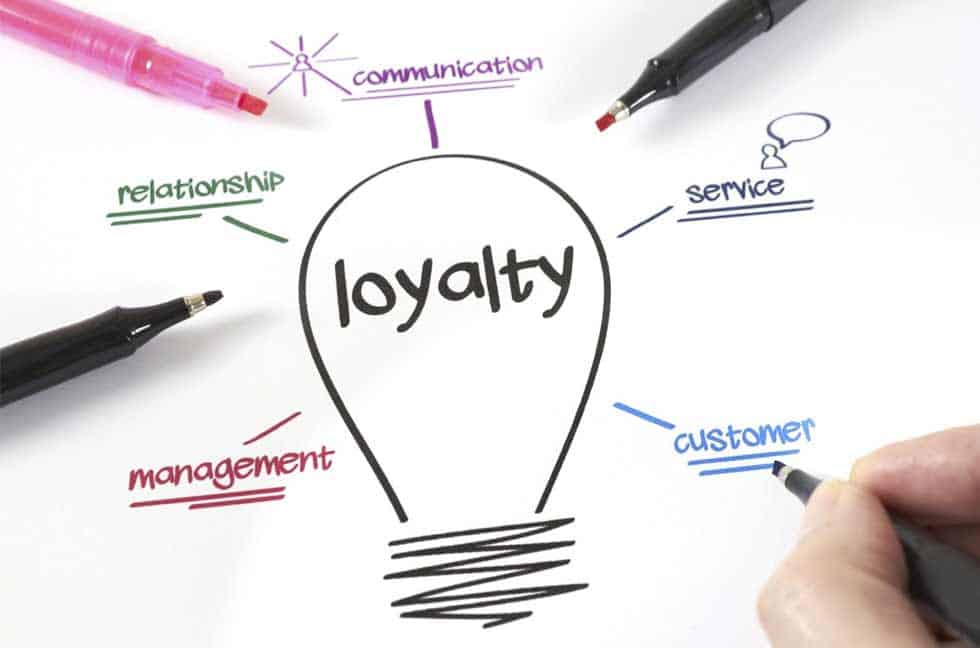
Big brands are in a precarious position. Customers have more choices than ever and are quick to jump ship when they feel someone else can better meet their needs. In order to stay relevant in crowded markets, it’s more important than ever for companies to look beyond acquisition strategies, and focus on driving loyalty and lifetime customer value.
Think for a moment about your favorite brands. How did they earn your loyalty? Why do you pledge allegiance to them over competitors with similar offerings?
Marketing expert Jay Baer, owner of Convince & Convert, says brand loyalty is most effectively earned by companies who “put utility first and their company second”, and strive to be “truly and inherently useful”. In other words, they focus on helping their customers, instead of talking about themselves.
Viral videos, memes and social media followers are great, but only if they contribute to the overarching health of a brand. Too many companies push for their fifteen minutes of fame and consider YouTube views, Instagram followers and Retweets as symbols of brand loyalty. Remember, fame is fleeting but being a favorite is forever.
In a world of crazy cat videos and irreverent memes, striving for usefulness may seem quite boring. However, when usefulness is woven into the fabric of a brand’s philosophy, it has proven to win over customers and keep them loyal.
Here’s a great example of how being useful pays dividends in the long run:
A former colleague told me a story about a Q&A session from a conference where Robert Stephens, the founder of Geek Squad, showcased his company YouTube channel, which is full of helpful instructional videos.
An audience member asked Robert why a company in the business of fixing things provides free videos showing people how to fix things on their own. Roberts response was, “Well, our best customers are the people that think they can do it themselves. But even if they can, someday they’ll be over their head, and who will they call for help? We’re betting it’s the company whose logo they looked at for 8 minutes when we gave them free video help.”
Geek Squad is not only being useful, but also altruistic by offering free content that helps customers solve real-world problems. Brands who understand the value of being authentically useful are those who win the most lifetime customers.
Here are five examples of brands using utility and usefulness to grow loyalty:
1. American Express keeps customer service top of mind
“Good service is good business because it creates impassioned, loyal customers,” says Kelly Fisher, senior vice president of relationship care strategy at American Express. “Those engaged customers spend more and share their excitement with others, which often influences their buying decisions.”
2. Seamless maintains open lines of communication
Seamless stays in constant contact with their customers via Twitter, providing info on everything from order status to website issues. By being available and highly responsive, they have established a feeling of a company who is open and honest with their valued customers, who keep coming back for more.
3. Xbox is there when times are good, and bad
Xbox is perhaps the most prolific in terms of rapid response time when customers need help with troubleshooting. In fact, they hold a Guinness World Record for the most responsive brand on social media, sending over 5,000 tweets per day to help gamers fix issues with account access, connectivity, consoles, games and much more.
4. Dove focuses on lifting the spirits of women
As stated on Dove’s twitter bio, “Dove is committed to helping women realize their beauty potential by creating products that deliver real care.” Through engaging awareness campaigns, Dove strives to make women feel good about themselves, which creates a personalized brand connection that is hard to break.
5. Tesla contributes to the global community
Tesla recently announced they will make some of their patents open source, as long as they are used in good faith. As highlighted in an article by Forbes.com, Tesla has identified a “sweet spot” between doing what is right and being profitable.
As noted in the article, “If Tesla took the short view on profits they would not have recognized that making some of their patents ‘open source’ gives them a better chance of expanding manufacturing, infrastructure development, and consumer demand for electric vehicles than if they were to hold all of their patents close to the vest.”
In summary
Brands need to stop trying to be famous, and start trying to be favorites. Being a favorite is not purchased or achieved overnight. It’s earned through trust, transparency, helpfulness and, of course, usefulness.
Let`s Get
In Touch
Contact us today for a free consultation
and cost estimate for
your project.
We work with companies in all
industries, big or small.
Give Us a Call: 786-529-6039
Services
©2024 FUZE DIGITAL INC. Ignite Your Brand™ | privacy





